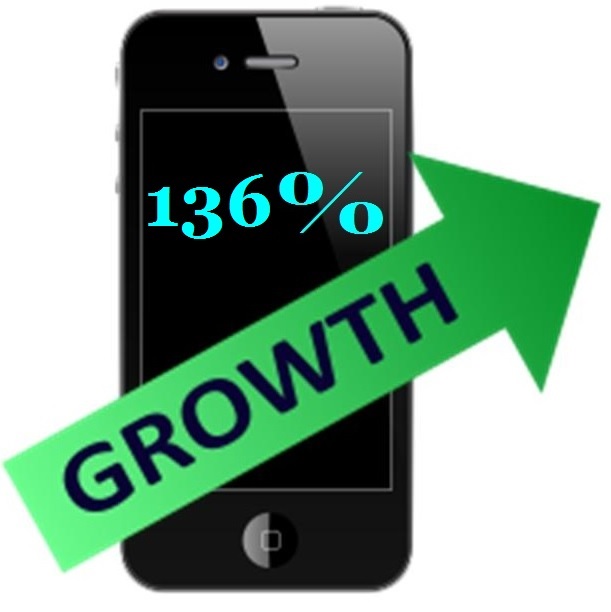The channel is booming as brands and companies discover that consumers are buying over their devices.
The latest figures have now been released from the e-Retail Sales Index from IMGR Capgemini, which has revealed that their mobile commerce index is continuing a rapid rise as retailers continue to catch on.
The massive year over year and month over month growth is being credited to retailer adoption.
The report from the latest index indicated a 136 percent growth when June of this year was compared to that of last year, and when May was compared to June this year, an 8 percent growth was recorded. Conversion rates had also experienced a considerable increase, which would prove highly appealing to retailers.
Mobile commerce conversion rates rose massively from 1.27 percent in June 2012 to 2.03 percent this year.
 At the same time, retailers are seeing that the spending rates and conversion rates over the tablet mobile commerce channel are approaching those of desktops. This is an opportunity that many of them are refusing to ignore. Even specific sectors are showing promising growth, causing the companies in those areas to get on board.
At the same time, retailers are seeing that the spending rates and conversion rates over the tablet mobile commerce channel are approaching those of desktops. This is an opportunity that many of them are refusing to ignore. Even specific sectors are showing promising growth, causing the companies in those areas to get on board.
In the U.K, clothing sales over mobile commerce saw a year over year growth in June of 29 percent, as summer wardrobe updates were made at the start of the season. Even more promising was the area of home and garden products, which saw a year over year growth of 35 percent in the same month as the winter was left long behind and landscaping, gardening, and home reno projects got started. Even travel rose over this channel as summer vacations were planned, with a year over year growth of 15 percent and a 4 percent month over month rise.
According to the Capgemini vice president and head of retail consulting and technology, Chris Webster, as consumer confidence continues to grow in mobile commerce and purchasing with their tablets and smartphones, the index is remaining very strong. The findings from their analysis is only underscoring existing evidence that wireless technologies have brought a great deal to the doorstep of the retail sector, and those companies are not failing to take hold.

 UK consumers prove to be very mobile-centric
UK consumers prove to be very mobile-centric